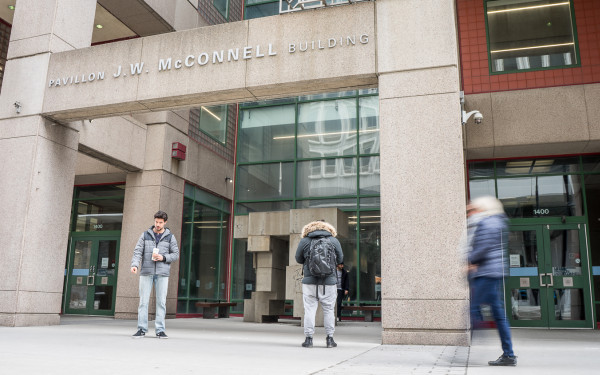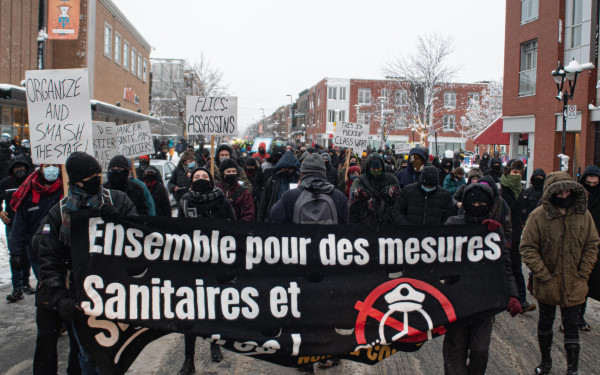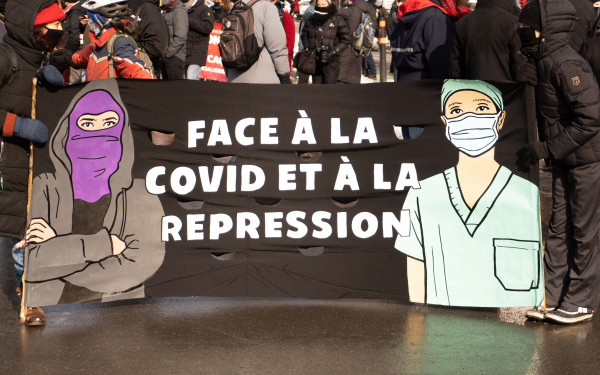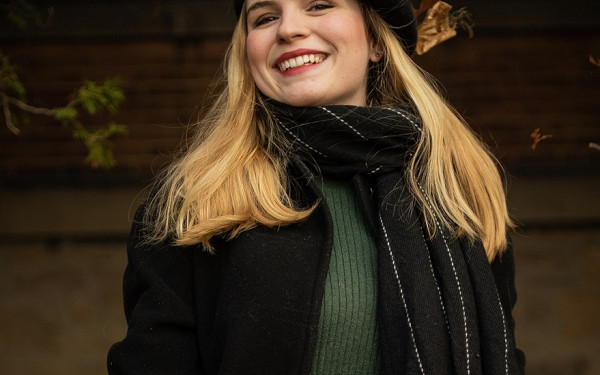Creating accessible spaces through conversation and technology
Hear Entendre Quebec is working to pave the way for hard-of-hearing friendly environments
In 1979, a collective of audiologists from the Queen Elizabeth Hospital had the idea to create a support group for their patients with acquired hearing loss after they noticed their patients weren't given enough support or resources outside of their audiologist appointments.
Patients typically had 30 minutes to an hour with their audiologist. In that allotted time, patients would do a hearing test, then be assessed and advised further by the audiologist based on their level of hearing loss.
Dale Bonnycastle, one of the audiologists who helped form the self-help group would be frustrated as she could never share sufficient information with her patients due to time constraints. Patients would feel lost as there were very few resources outside of an appointment they could access for support.
"You were given a hearing aid and told, 'go out there and do your best, cope as best you can,'" Bonnycastle explained.
These support groups took a peer-centred approach and allowed for those navigating their hearing loss to share, learn and cope as one. These groups were the foundation that Hear Entendre Quebec was built on.
Hear Entendre Quebec is a non-profit organization that offers various programs and services to the Montreal hard-of-hearing community.
According to Bonnycastle, a current board president and volunteer at the organization, the support group’s success was what catalyzed Hear Entendre Quebec from weekly support groups to an organization advocating for and creating hard-of-hearing accessibility in Quebec. Hear Entendre Quebec's support groups still take place today but have evolved to take different forms. Instead of taking place in hospitals, support groups now gather for coffee breaks, peer mentoring or cocktail evenings.
The organization’s goal is to increase awareness and accessibility through workshops on how to use assistive technology, outreach, home assistance and more. Nearly 60 per cent of Canadians have experienced hearing loss, and most of those who experience hearing loss aren't even aware they are living with it.
To Heidy Wagner, the organization's executive director, providing support for those with hearing loss is important as it affects all aspects of life, such as communication, family dynamics, work and intimacy.
The only way audiologists felt they could deliver vital information to patients efficiently was to provide it as a group. Yet, the group offered more than solely extra information from audiologists; it provided peer support, constructive coping, and conversation on how to fully optimize living with hearing loss as much as possible from those with lived experience. Although the support group was overseen by audiologists, the principle of the group was that the participants living with acquired hearing loss should lead the discussion; they were the experts and could share and relate meaningfully.
The organization is primarily geared towards those with acquired hearing loss, which means an individual who has been a hearing person for most of their life, but due to damaged hair cells in the ear, begin to lose their hearing. Those with acquired hearing loss differ from those with congenital hearing loss, as congenital hearing loss means an individual was born deaf.
Wagner explained that when someone develops acquired hearing loss, they will likely struggle to adapt to their new normal. In contrast, someone with congenital hearing loss is typically born embedded in the resources used to support them and has adjusted to the lifestyle. She added that for someone with hearing loss to optimize their environment, they'll need assistive technology, yet often, patients are prescribed this technology with no training on how to use it.
Hear Entendre Quebec's support services aim to boost knowledge and comfort among those adapting to a new way of life, which, as Wagner described, is hard work and can be very exhausting.
"The amount of time it takes you to process a conversation, you'll walk away from the conversation completely fine,” said Wagner. “For a person with profound hearing loss, they would walk away from the conversation completely exhausted and done for the day because they have to piece together the conversation, they might have missed a word or have a hard time reading lips. It takes much longer for them to process the information."
To assist its members in adapting, the organization offers programs such as "Include ME" and "Consult ME," both of which revolve around making assistive tech more accessible.
According to Layne Turner, the accessibility project coordinator, the Include ME program is volunteer-run. They go into the members' homes to set up their assistive technology, like TV amplifiers and amplified phones. The phones increase volume and slow down a caller's voice to increase clarity, and it is well suited to cater to those with different levels of hearing loss.
"[Hearing loss] is really isolating, and so technology gives people the chance to connect," Wagner said.
A TV amplifier can be used with headphones or connected to a hearing aid. It can benefit the hard-of-hearing individual and can be accessed by the whole family, as the amplifier makes the TV accessible to everyone in the household.
"The idea is that once they receive these devices, they will actually use them instead of sitting at home in a drawer gathering dust and not being an effective part of their accessibility," Turner said.
The volunteers for this program are peers who have experienced hearing loss and are well accustomed to the devices they are helping set up.
"They just need that little extra support, one-on-one in the home," said Wagner. She noted that this program was created for that extra level of care that hearing health professionals don’t have time to offer. These professionals are often backlogged and typically can’t go into somebody's home and teach them how to use a device.
Aside from the role these devices play in connecting people, Wagner emphasized how essential the program is for safety. Once the volunteers have solved the ongoing tech issues, they will talk to the members about TEXT 911 (a service to simplify the process of contacting the authorities in the case of an emergency) and register them with the city as a hard-of-hearing. That way, the police and fire departments are aware of the individuals living with hearing loss.
The second part of Hear Entendre Quebec's accessibility program, Consult ME, is all about fostering full accessibility by including everyone in the arts and entertainment sector in Montreal. The program provides accessibility training to make spaces more inclusive by offering knowledge about hearing loss and developing an action plan to apply the accessibility measure. The organization incorporates training on how to use assistive technology and how it works, for instance, hearing loops, FM systems, AI captioning, digital modulation systems, etc. Turner detailed how to make a space fully accessible, saying that it is about meeting everyone's needs, as hearing loss is a spectrum.
The desire to create guidelines to ensure the accessibility for events comes after Just For Laughs (JFL) and Jazz Fest were under scrutiny for not being accessible to its hard-of-hearing audience.
"It is always the same conversation in any disability. There is a lack of knowledge, not a lack of want," said Wagner. "What happened at Jazz Fest and JFL wasn't that they didn't want to be accessible, it was that they didn't understand what that meant and what people needed."
In 2019, Hear Entendre Quebec held its first-ever fully accessible comedy show, with 300 people in attendance. The event was wheelchair accessible and featured live captioning, American Sign Language, a T-coil hearing loop, and an FM system. The organization also invited people from the wider Montreal community whom they deemed “change makers.”
"The whole goal of ‘access comedy’ was to make it accessible to people, yes. But it was to showcase and demonstrate that it can be done and the experience doesn't change," said Wagner. "If we want that change to happen, the people that we need to be the ‘change makers' need to be in attendance."
Bonnycastle, Wagner, and Turner all agreed that although assistive technology is available to make for more accessible environments, it is about putting the technology into practice, whether in movie theatres, places of worship, or comedy shows.
“Hearing loss is invisible, and it's misunderstood. So it doesn't strike people right away,” said Wagner.
They emphasized that there needs to be a standard in public places to offer these kinds of technologies.
Visit Hear Entendre Quebec's website if you are interested in their services or are curious about getting involved.
This article originally appeared in Volume 44, Issue 12, published March 19, 2024.

_900_1260_90.jpg)





